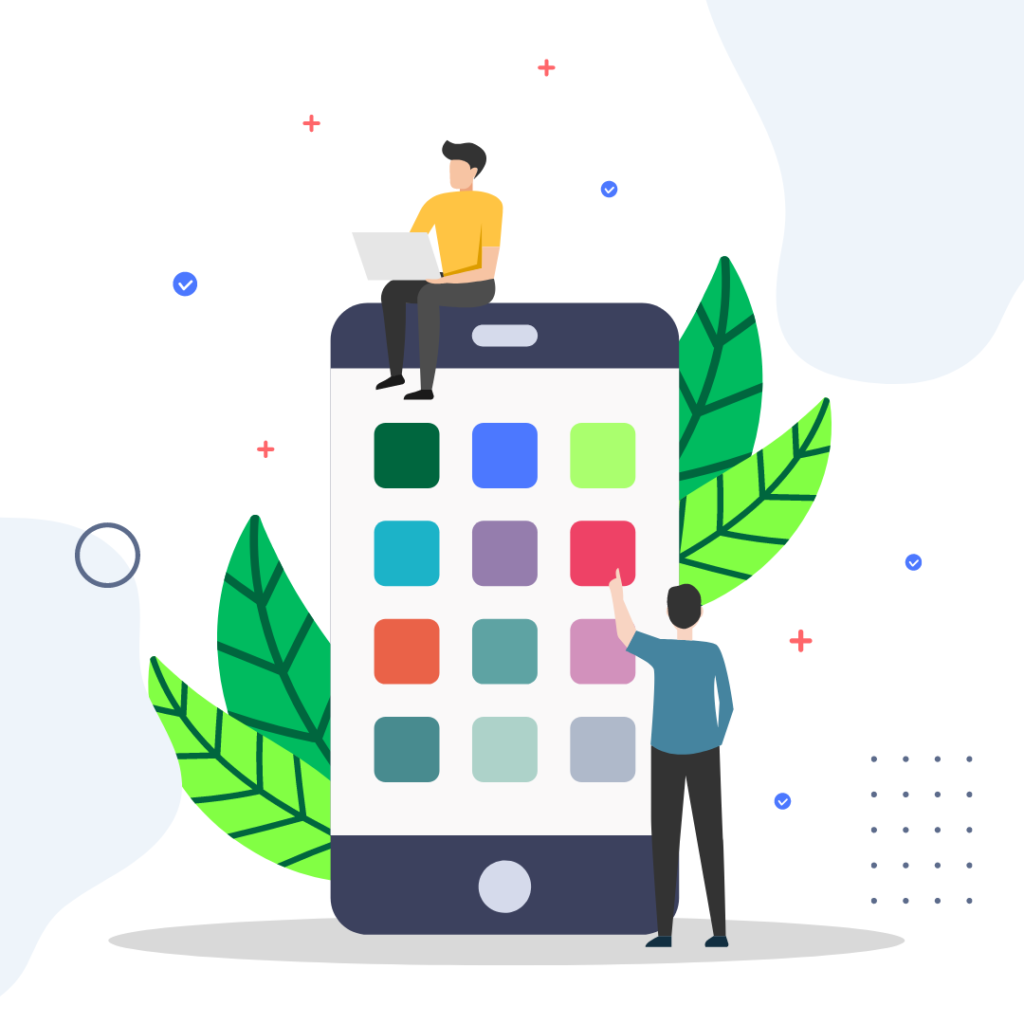apps are revolutionizing healthcare across the globe, with the UK at the forefront of this transformation. By integrating innovative technologies and offering more personalized patient care, mobile healthcare apps have become essential tools in the healthcare industry. As we move into 2024, several key trends are shaping how mobile apps are enhancing healthcare services in the UK. In this blog, we will explore these trends and their potential impact on both providers and patients, as well as the role of mobile app development companies in facilitating these advancements.
1. AI-Powered Healthcare Solutions
One of the most prominent trends driving mobile healthcare apps in the UK is the use of artificial intelligence (AI). AI can analyze vast amounts of data and generate insights that improve patient care and streamline operations.
For example, AI-powered chatbots are becoming increasingly common in mobile healthcare apps, providing patients with instant responses to their medical inquiries. These chatbots are not just offering generic advice; they are capable of understanding the nuances of patient conditions based on their medical history and symptoms. By incorporating machine learning algorithms, these bots can even improve their responses over time, providing a more personalized patient experience.
This allows healthcare professionals to predict potential patient outcomes based on current data, enabling more proactive care management. For instance, mobile apps that monitor chronic conditions like diabetes or heart disease can predict complications before they occur, helping healthcare providers take preventive measures early on.
2. Telemedicine and Virtual Consultations
Telemedicine has seen tremendous growth in recent years, and the trend is only expected to accelerate in 2024. The ability to conduct virtual consultations through mobile apps has greatly improved healthcare accessibility, particularly for those living in remote or underserved areas.
Virtual consultations not only make healthcare more accessible but also reduce the pressure on physical healthcare facilities. Patients can now consult with doctors, receive diagnoses, and even get prescriptions from the comfort of their homes. This is especially valuable in managing chronic conditions, where regular check-ins with healthcare providers are necessary.
Mobile app development companies in the UK are increasingly focusing on building robust telemedicine platforms that are both user-friendly and secure. These apps incorporate features such as high-definition video calls, electronic health records (EHR) integration, and encrypted messaging, ensuring patient data remains protected while offering convenient access to healthcare.
3. Wearable Technology Integration
Another significant trend in mobile healthcare is the integration of wearable technology. Devices such as smartwatches and fitness trackers are now capable of monitoring various health metrics, including heart rate, sleep patterns, and physical activity levels.
The use of wearable technology in healthcare apps is particularly beneficial for patients managing chronic diseases. For example, a person with heart disease can use a wearable device to monitor their heart rate continuously. the mobile app can send alerts to both the patient and their healthcare provider. This real-time data collection enables faster intervention and better management of health conditions.
By 2024, we can expect more sophisticated integration between wearable devices and healthcare apps. Beyond just tracking fitness, these devices could start incorporating advanced metrics such as glucose levels for diabetic patients or oxygen saturation for those with respiratory issues.
4. Data Security and Privacy
With the increasing adoption of mobile healthcare apps, concerns about data security and privacy are also growing. Patients entrust these apps with sensitive health information, making it crucial for mobile app development companies to prioritize security.
Mobile healthcare apps must comply with regulations such as the General Data Protection Regulation (GDPR) in the UK, which mandates strict guidelines on how personal data should be collected, stored, and shared. Additionally, app developers are incorporating advanced encryption technologies to protect patient information.
Blockchain is emerging as a possible solution to strengthen data security in healthcare apps. By decentralizing data storage, blockchain makes it nearly impossible for unauthorized parties to access or tamper with patient information. In the coming years, the incorporation of blockchain in healthcare apps is likely to become more widespread.
5. Personalized Healthcare Experiences
As mobile technology continues to evolve, so too does the potential for more personalized healthcare experiences. Mobile apps are no longer just about managing appointments or accessing medical records. They are becoming essential tools for delivering tailored health interventions based on individual needs.
Personalized healthcare through mobile apps can range from customized treatment plans to individual wellness programs. For instance, patients can receive reminders to take medication at specific times, track their progress, and get tailored health tips based on their condition. Additionally, healthcare providers can use the data collected by these apps to offer more precise diagnoses and treatments, resulting in better outcomes for patients.
Healthcare app developers are now working on integrating AI-driven personalized solutions that learn from patient interactions. This allows for real-time adjustments to treatment plans based on patient behavior, leading to a more dynamic and responsive healthcare system.
6. Internet of Medical Things (IoMT)
The Internet of Medical Things (IoMT) refers to the interconnected network of medical devices and software applications that collect, analyze, and transmit health data. IoMT is increasingly being integrated into mobile healthcare apps, providing real-time insights into a patient’s health status.
By 2024, IoMT-enabled apps will likely offer more comprehensive health management features. For instance, an app connected to an IoMT device can monitor a patient’s vital signs continuously, transmitting that data to healthcare providers in real time. This is particularly useful in managing patients with conditions that require continuous monitoring, such as cardiovascular diseases or respiratory issues.
The seamless integration of IoMT with mobile apps is enabling more efficient and accurate healthcare services, reducing the need for in-person visits while ensuring that patients receive timely interventions.
Conclusion
The trends shaping mobile healthcare app development in the UK in 2024 reflect the growing demand for more accessible, efficient, and personalized healthcare. Technologies like AI, telemedicine, wearable devices, and IoMT are revolutionizing healthcare delivery, making it more patient-centric and data-driven. Security and privacy concerns are addressed through enhanced encryption and emerging technologies like blockchain.
As these trends continue to evolve, mobile app development companies in the UK will play a pivotal role in creating innovative solutions that meet the needs of both healthcare providers and patients. By embracing these technologies, the UK healthcare system is set to become more efficient and responsive, ultimately improving patient outcomes across the board.
For healthcare providers looking to stay ahead of these trends, partnering with a mobile app development company in UK that understands the specific needs of the healthcare industry will be essential in delivering high-quality, secure, and effective mobile healthcare solutions.




